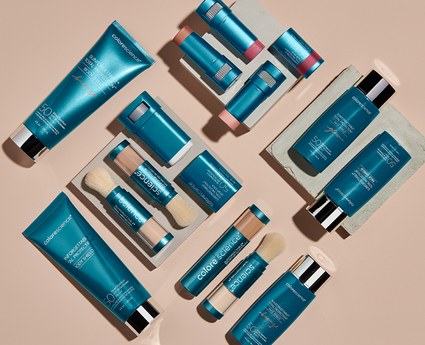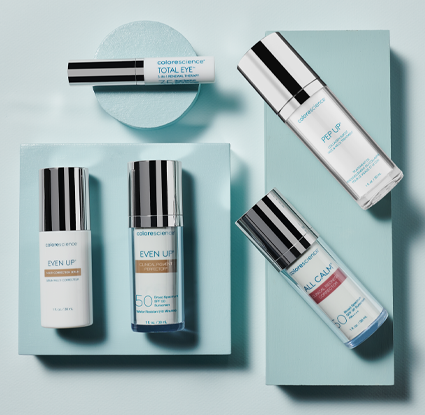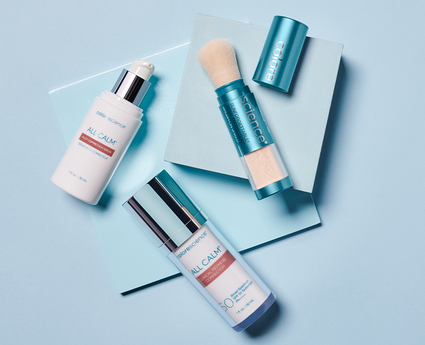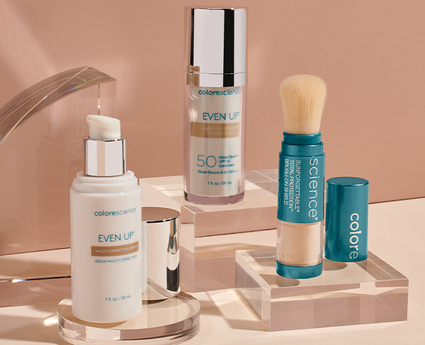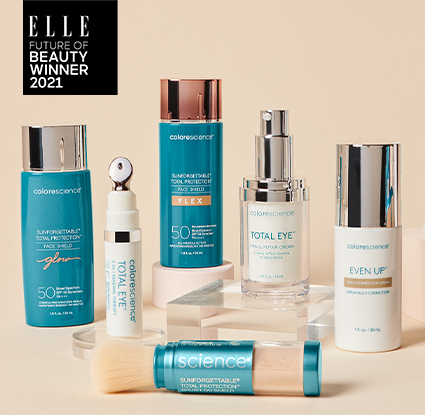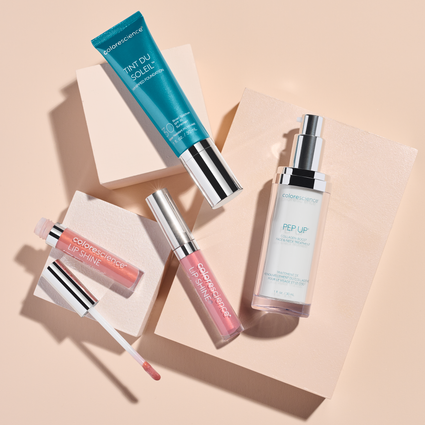SPF Levels: What SPF Do I Need to Use?
SPF Levels: What SPF Do I Need?
What strength SPF do I need?
The general recommendation is SPF 30 or higher. But you might be wondering “what SPF do I need if my skin is especially sensitive to the sun?”. The level of SPF that’s recommended for you may depend on your skin type. For example, you may need a higher SPF if you have:
- Fair skin
- Highly sensitive skin (you have allergies to certain ingredients, a condition like rosacea, etc.)
- A family history of skin cancer
You see SPF labels on every sunscreen bottle and you know that it’s important, but what does SPF stand for? SPF stands for sun protection factor and is a measure of how effectively a sunscreen can filter out UVB rays, which helps protect your skin against skin cancer and sunburn. It’s important to note that SPF does not guard against UVA rays—which contribute premature aging and general skin damage. So, in addition to SPF, you want to look for a sunscreen that is labeled as “broad-spectrum sunscreen”.
As you know from reading sunscreen labels, there are two components of SPF, the other being the number attached to it. What does the number in SPF mean? According to the Skin Cancer Foundation, the number associated with your SPF indicates how much longer you can withstand sun exposure without getting burned. Using SPF 30 as an example, it will take you 30 times longer to burn when wearing an SPF 30 sunscreen than it would if you weren’t wearing any sunscreen.
In our selection of UV protectors, you will find a variety of different types of sunscreen formulas, all of which are broad-spectrum sunscreen and protect against environmental factors like pollution.
What SPF do I need for my face?
The skin on your face is especially sensitive, so it is important that you follow the recommendation of wearing SPF 30 or higher. While SPF 30 is the standard, SPF 50 protects you against 98% of UVB rays. A 1% difference in protection might not seem like much, but why expose yourself to any more risk than you have to?

We offer a diverse range of mineral sunscreens with SPF 50, so you can ensure the delicate skin and easily aging skin on your face is as protected as possible. Some of our most popular SPF 50 sunscreens include:
- Sunforgettable® Total Protection™ Brush-on Shield: With the brush applicator, this mineral powder sunscreen is easy to apply on-the-go. This sunscreen can be worn with or without makeup and is available in four shades: fair, medium, tan, and deep.
- Sunforgettable® Total Protection™ Sport Stick: In stick form, this sunscreen can be taken anywhere, making it a great solution for outdoor activities. This formula glides on smooth for easy application.
- Sunforgettable® Total Protection™ Face Shield: This liquid formula is made from the same all-natural mineral formula, has a weightless texture, and blends seamlessly with all skin tones.
How often should I apply SPF?
In addition to asking “what SPF do I need”, you should also be asking, “how often should I apply SPF”. Even if you have the highest SPF level sunscreen, it’s not going to do you much good if you don’t reapply once it’s effectiveness starts to wane.
No matter what level of SPF you’re using, the general rule of thumb is to reapply sunscreen every two hours. However, if you’re sweating significantly or sweating, you should apply more frequently. In these cases, you’ll need to reapply sunscreen every 40 to 80 minutes, depending on how water resistant your sunscreen is.
If you’re using Colorescience water-resistant sunscreen, you’ll only need to reapply every 80 minutes. That’s because the Colorescience sunscreen formula qualifies as “very water resistant” according to the FDA’s requirements, meaning you can rely on sufficient SPF protection for up to 80 minutes, even if you’re swimming.

Is a higher SPF better than a lower SPF?
First, it’s important to point out that no sunscreen protects against 100% of UVB rays. However, as the SPF level increases, so does its effectiveness against UVB rays.
The most common SPF levels are:
- SPF 15: blocks 93% of UVB rays
- SPF 30: blocks 97% of UVB rays
- SPF 50: blocks 98% of UVB rays
- SPF 100: blocks 99% of UVB rays
As you can see, effectiveness only changes slightly once you get into SPF 30 and higher. That’s why SPF 30 and SPF 50 are generally considered sufficient for sun protection. One of the reasons that SPF 100 isn’t typically recommended over these mid-tier SPF levels is because people often misconstrue it to mean that they can go without reapplying for a much longer period of time, which can lead to a false sense of security and more sunburns and skin damage.
Above and beyond the SPF level of your sunscreen, the key to ensuring you get the utmost protection from your sunblock* is to apply (and reapply) as recommended. That means ensuring you achieve full, even coverage—especially on the most delicate areas like under your eyes, tops of your ears, and other often-forgotten areas.
How long does SPF last?
Generally, SPF is effective for up to two hours—which is supported as the rule of thumb by the Skin Cancer Foundation. That means that you’ll need to reapply your sunscreen at least every two hours. As we mentioned earlier, that means you need to reapply every two hours or less to receive the optimal level of protection from your sunscreen.

In addition to how long SPF lasts during use, you should know that sunscreen does expire. So, if you’re wearing sunscreen that’s past the recommended expiration, you might not be getting the level of SPF protection you need. According to the FDA, sunscreen should be considered expired after three years, unless it has an expiration date printed on the label.
Now that you have the answer to “what level of SPF do I need?” and understand how SPF works, shop our Total Protection™ collection to find the right sunscreen formula for your skin type and lifestyle. Our mineral sunscreens contain the recommended levels of SPF, are broad spectrum, and guard against environmental pollutants, so you only need one sunscreen to meet all your needs.
*Sunblock is not a term approved by the FDA. Colorescience refers to our products as sun protection.

